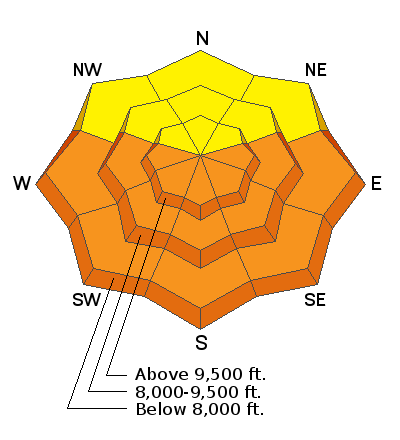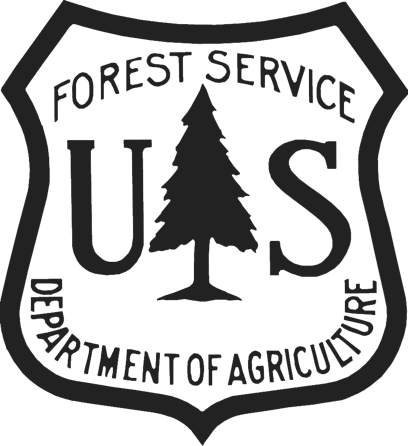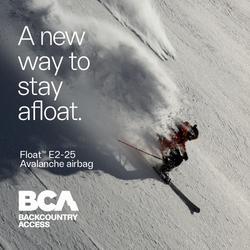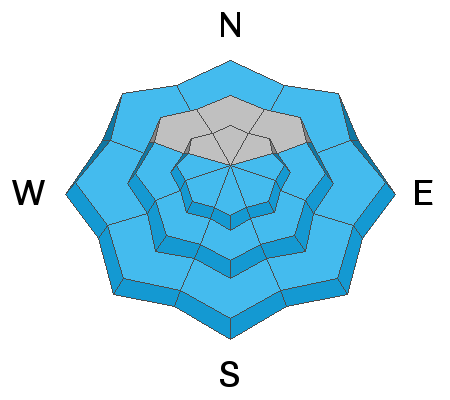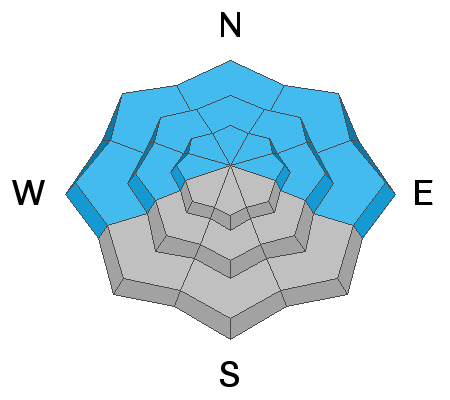Skies are clear with light westerly winds. Rapid warming aloft continued through the overnight hours and current mountain temps are in the mid-20s. With an inversion building, trailheads and basins remain in the single digits.
Skiing and riding conditions remain divine, though some solar aspects will have zipper sun crust this morning.
Clear skies this morning will give way to periods of cloud cover streaming in from the west. Winds will remain generally light from the west with slightly breezier conditions in the Ogden and Logan area mountains. Temperatures will be in the upper 20s along the ridgelines today and into the mid-30s down low.
Weak ridging will keep fair weather overhead through the week with mountain temperatures reaching into the 40s by mid/late week. A storm is forecast for Friday.
A possible natural slab avalanche was spotted in what looks to be Big Springs or Bunnels fork below the Cascade ridgeline yesterday. It was on a steep northeast facing slope at 9500'. In upper Big Springs, a skier triggered a wind slab around a rocky terrain feature on a steep east facing slope. Further north, a skier triggered and was briefly caught in a solar warmed wind drift in the Silver Creek drainage at roughly 10,500'.
Elsewhere in the central Wasatch -
*
A backcountry party ascending Tanners Gulch in Little Cottonwood Canyon yesterday morning experienced a very close call. Just before 8am, the party was at an elevation of 9500' when a natural sluff cascading down from above engulfed two of the three, carrying them 600' downhill. One was partially buried. Despite some bumps and bruises and lost gear, they were able to self-evacuate. Tanners Gulch is a very steep hourglass with a mile of starting zones between 10,700' and 11,100' that sits on the north side of Little Cottonwood Canyon. Their excellent write-up can be found
HERE>* Four more backcountry parties triggered shallow pockets of soft slab avalanches into the Jan/Feb PWL drought layer of facets 12-18" deep and 35' wide. Two of these were in White Pine of LCC, one was in upper Mineral Fork of BCC, and one was in Mill A Gulch of BCC. These were on north to east facing aspects between 9300' and 9800'. Cracking and collapsing into this layering was also noted in Neffs, Guardsman Pass, Beartrap, and Summit Park.
* A skier descending south below what looks to be Two Trees (just west of Cardiff Peak) in LCC triggered a size two wet loose slide that entrained a good bit of wet snow on the way down.
Greg Gagne's Week in Review is published and can be found
HERE.

